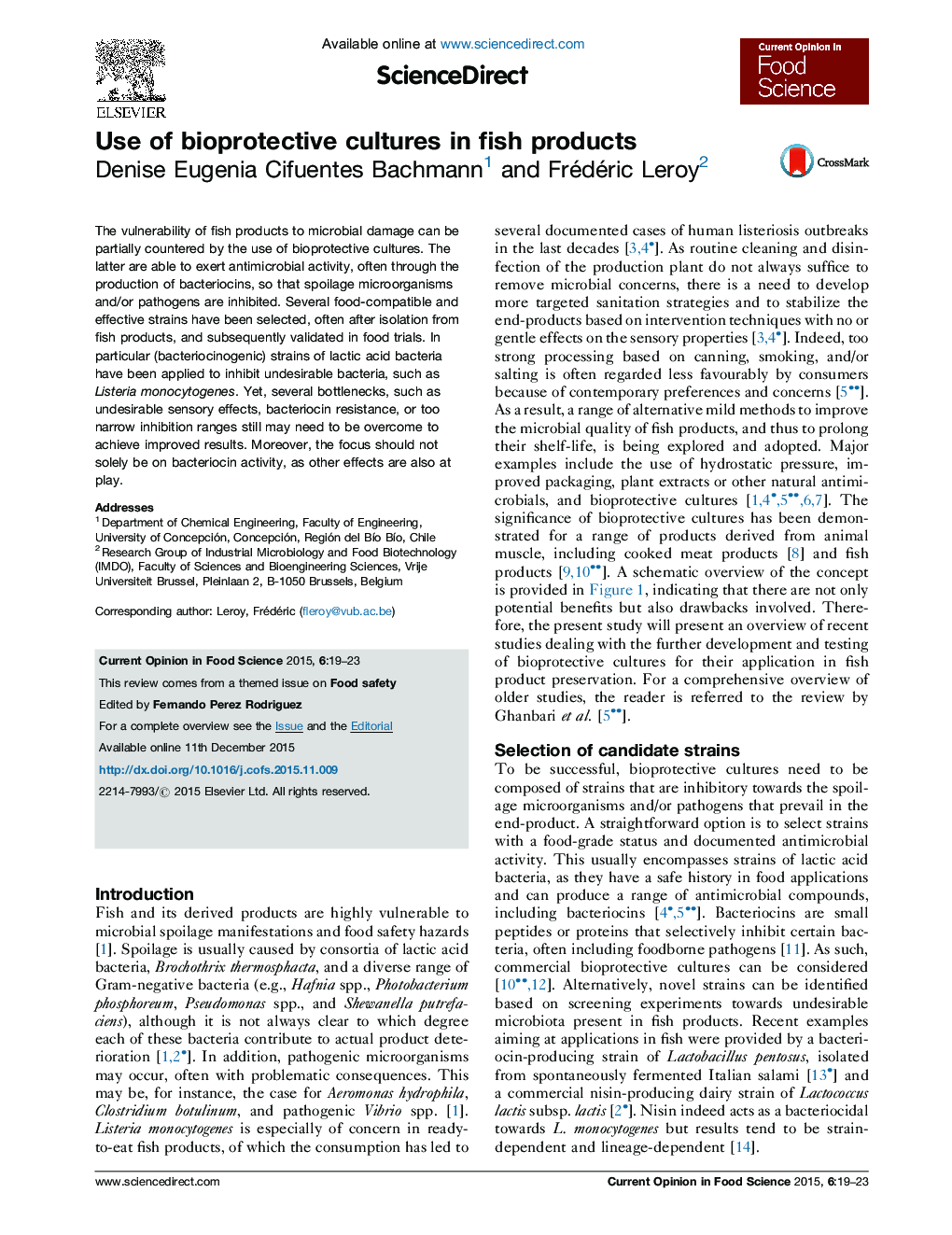| Article ID | Journal | Published Year | Pages | File Type |
|---|---|---|---|---|
| 2079665 | Current Opinion in Food Science | 2015 | 5 Pages |
•Fish products, such as smoked salmon, are vulnerable to microbial damage.•Bioprotective cultures offer a mild means to combat spoilage bacteria and pathogens.•Inhibitory mechanisms are often based on bacteriocins and/or niche competition.•Promising results have been obtained but several bottlenecks still remain.•Strain selection and adaptation to the matrix and processing are primordial.
The vulnerability of fish products to microbial damage can be partially countered by the use of bioprotective cultures. The latter are able to exert antimicrobial activity, often through the production of bacteriocins, so that spoilage microorganisms and/or pathogens are inhibited. Several food-compatible and effective strains have been selected, often after isolation from fish products, and subsequently validated in food trials. In particular (bacteriocinogenic) strains of lactic acid bacteria have been applied to inhibit undesirable bacteria, such as Listeria monocytogenes. Yet, several bottlenecks, such as undesirable sensory effects, bacteriocin resistance, or too narrow inhibition ranges still may need to be overcome to achieve improved results. Moreover, the focus should not solely be on bacteriocin activity, as other effects are also at play.
